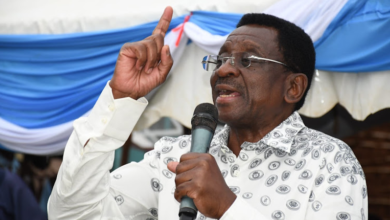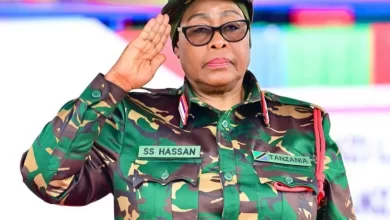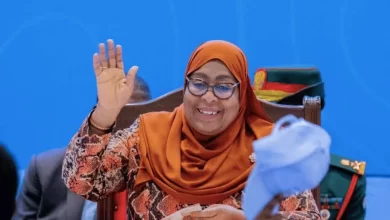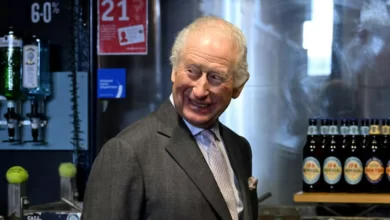Gachagua’s Quest for Reconciliation with Uhuru
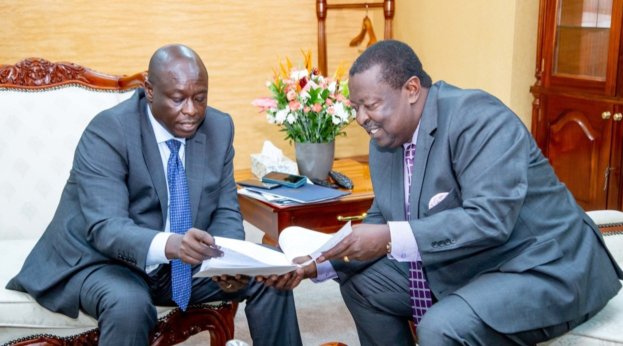
Deputy President Rigathi Gachagua finds himself in a tumultuous political landscape, grappling with increasing divides within the Kenya Kwanza alliance, mounting succession intrigues in the lead-up to the 2032 elections, perceived rebellion within his Mount Kenya stronghold, and the relentless onslaught from the Azimio la Umoja coalition.
Faced with these challenges, the Deputy President has taken the extraordinary step of extending an olive branch to his long-time adversary, former President Uhuru Kenyatta.
In a striking departure from his previous stance, Gachagua, who had aggressively criticized and labeled Uhuru a ‘thief’ responsible for a faltering economy during the campaigns, now speaks of reconciliation and cooperation.
“Kenyatta was endorsing Raila Odinga for the presidency, and he lost. We have now decided to embrace him as our respectable son and statesman, despite our past differences,” Gachagua stated in a recent interview with Inooro Radio.
He further expressed the unity of purpose among Mount Kenya leaders in refraining from antagonizing Uhuru and affirmed his intention to engage in talks with the former President.
However, Gachagua’s change in approach may be indicative of growing concerns within his camp.
Reports suggest that his once united Mount Kenya political base is now characterized by disquiet, infighting, and uncertainty, which could potentially undermine his political fortunes.
The Deputy President’s relationship with key figures within his administration, such as Public Service Cabinet Secretary Moses Kuria and Kiharu MP Ndindi Nyoro, appears to have soured, leading to concerns that his support for Kuria’s transfer from the Trade and Industry docket may have strained their relationship.
Gachagua has also faced accusations of plotting Kuria’s removal from the Cabinet, although he claimed to have recommended his appointment to Ruto. In response, the Deputy President acknowledged the strained relationship, expressing his intent to counsel Kuria.
“I’m the one who talked to the President to give Kuria work in the Cabinet. I will talk to him (Kuria) to cease being the bad boy he is. I will work to ensure he aligns with the expectations of his office,” Gachagua remarked during the Inooro Radio interview.
Former Bahati MP Kimani Ngunjiri voiced his concerns regarding Gachagua’s political maneuvers, asserting that both himself and Ndindi Nyoro had been sidelined. He also underscored the importance of the Deputy President adhering to the national agenda.
“I also want to remind the Deputy President that the most important duty after being elected as President is to unite all Kenyans. The President is a symbol of unity and should not be involved in discussions about shares,” Ngunjiri remarked.
The growing resurgence of “Uhuru’s political orphans” within Mount Kenya has created a significant political obstacle for Gachagua’s efforts to unite the region.
Former Mukurwe-ini MP Kabando wa Kabando called on Gachagua to refrain from perpetuating divisive politics based on ethnicity and announced his opposition to Ruto’s camp. He made it clear that he had reservations about the direction the Deputy President was taking.
Gachagua defended his efforts for reconciliation, asserting that they are aimed at solidifying unity within the Mount Kenya region to ensure President William Ruto’s resounding victory in the 2027 elections.
However, political analysts contend that Gachagua’s reconciliation with Uhuru may be too little, too late, as the Deputy President’s previous antagonism towards the former President has left lasting impressions.
“People did not appreciate how he harshly criticized Uhuru during the inauguration ceremony. At the time, Uhuru was in a vulnerable position due to his recent election loss, and Gachagua missed the opportunity to demonstrate maturity and magnanimity,” commented Professor Macharia Munene, a political science lecturer.
Analysts also suggest that President Ruto is diversifying his political strategies and has begun focusing on regions outside Mount Kenya, indicating a possible shift in his 2027 re-election strategy.
This strategic shift was evident in a recent cabinet reshuffle that elevated Musalia Mudavadi to a more influential position as the Prime Cabinet Secretary and Head of Foreign Affairs, possibly to bolster his candidacy as Ruto’s successor.
The political landscape is undoubtedly shifting, with the Deputy President acknowledging the importance of unity amid growing challenges and uncertainties. Whether this reconciliation will have the desired effect remains to be seen, but it is a testament to the ever-evolving dynamics in Kenyan politics.

